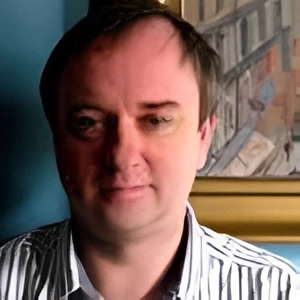Dorothy Hodgkin – who discovered the biomolecular structure of steroids, insulin and penicillin – and Rosalind Franklin, whose research played a critical role in our understanding of DNA, are often held up as examples of women whose contribution to science has been publicly recognized (though in Franklin’s case too little, too late). But however much progress has been made in promoting the role of women in science and technology, it’s still very much – as Sarah Vaughan would sing – ‘a man’s world’.
In the field of IT and computing, for example, there are one or two women who, if you’re lucky, you may have heard of. But they are hardly household names. To explain why, you only have to look at the story of Grace Hopper. She worked for the US navy and developed the first ‘compiler’ to translate higher-level programming language into machine-readable code; she is also credited with the first use of the word ‘bug’. You can only imagine her feelings as she stepped up to the podium to receive a prestigious award for her achievements – ‘1969 Computer Science Man of the Year’.
Even Ada Lovelace, the daughter of Lord Byron, who in 1843 helped to develop the first algorithmic program for Charles Babbage’s mechanical computer, is barely remembered. Describing her work as ‘poetical science’, Ada wrote that as far as she was concerned, philosophy and mathematical analysis were ‘indissolubly’ connected. And her intuition led to an early appreciation of the role that computer technology would have in people’s lives.
But whatever Ada might have hoped for has taken more than 150 years to achieve. Poor provision of education and training for girls in IT has effectively raised the ‘glass ceiling’ beyond the reach even of the most capable women. In a recent article on the role of women in computing, the Daily Telegraph revealed that “in the groups of [UK] schoolchildren who attend the National Museum of Computing’s Learning Programme… only one pupil in ten is a girl.”
Yet here in Prague there are signs of change. The ‘IT crowd’, once a strictly male preserve, seems to be increasingly where the brightest and best young women are heading. Prague College’s school of IT & Computing is currently celebrating the success of a recent Canadian graduate, Jana Jarolimova, who gained a first-class BSc (Hons) in Computing. And 50% of newly-enrolled students on the HND (Higher National Diploma) course at the college are female – a healthy reflection, perhaps, of things to come.
One of the new students, Anita Obdrzalkova, explains why she selected this course: “My story started with studying philosophy and drama, but gradually I found myself more and more attracted to technology. I find the combination of IT/Multimedia perfect for somebody interested in art and technology at the same time.” Her words sound uncannily like those of Ada Lovelace.
We asked Veronika Douchova, Associate Head of the School of IT & Computing at Prague College, why women should study the subject. “The question is, why shouldn’t they?” she replies. “Computing still has the aura of being a subject like engineering, mathematics and physics but this is only partly true, so the argument that IT is a technical subject is not valid.”
For the college’s HND course in computing, in addition to a strong foundation in programming, students (both male and female) are taught the values of communication, negotiation, project planning and implementation – even customer support.
“We have had some remarkable female students at Prague College,” continues Ms Douchova, “and our first year group with five girls shows how normal this is. During their study women show more accuracy and attention to the detail than men. They may have less will to compete and excel, however they bring into the field more empathy with the future user, and better communication skills – so important when dealing with a ‘non-computing’ customer. I am always relieved when I hear that girls have applied for our programme. It shows that the society is getting rid of another preconception.”
There is general agreement that times are changing. At a time when Czech captains of industry are bemoaning the lack of skilled computing graduates, Prague College has also recently added a one-year MSc in Computing to its innovative portfolio. A highly practically-based course, specifically designed to produce graduates with up-to-date skills, it’s just one way in which Prague College’s School of IT & Computing is helping to develop a new generation of smart, highly employable students… of both sexes.
Do you work in IT and computing? Have you experienced any challenges finding work in this area? Let us know in the comments below.
Alex Went is Head of Communications at Prague College.
Photo © Prague College
Related articles
- Czech Teachers to Get a Massive Pay Increase this Autumn
- Czech Teachers Have the Worst Salaries In the World
- Czech-Designed 3D Heart Is Revolutionizing Classroom Learning
- Czech Republic among Best Places In the World to Teach English In 2017
- Prague among Best Cities In the World for International Students












 Reading time: 4 minutes
Reading time: 4 minutes 



























